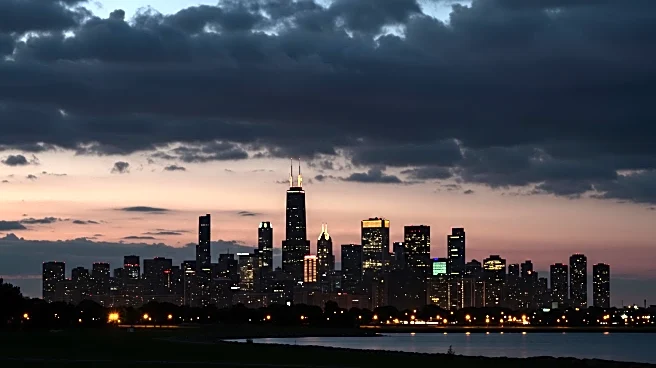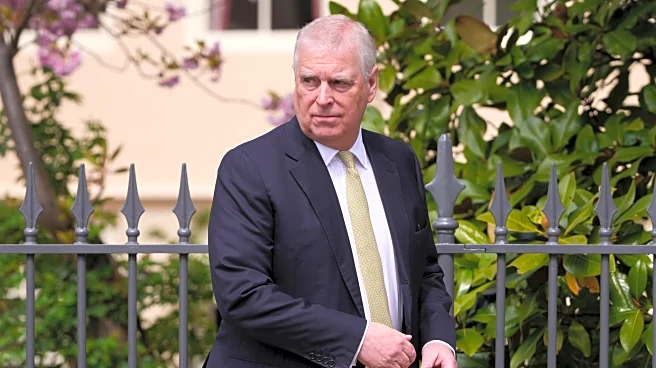What is the story about?
What's Happening?
President Trump has announced plans to target Chicago in his next crime crackdown, following similar actions in Washington, D.C. This initiative involves deploying troops to address crime, homelessness, and illegal immigration. Trump described Chicago as a 'mess' and claimed residents are 'screaming for us to come,' despite recent decreases in violent crime rates. Chicago Mayor Brandon Johnson and other Illinois officials have expressed strong opposition, citing concerns about the impact of military deployment on community relations. They argue that Trump's approach is uncoordinated and could exacerbate tensions between residents and law enforcement. The proposal has sparked criticism from local leaders who emphasize community-based solutions over federal intervention.
Why It's Important?
The proposed federal intervention in Chicago highlights ongoing debates about crime management and the role of the military in domestic affairs. Critics argue that deploying troops could undermine local efforts to reduce crime through community investment and social services. The initiative reflects broader political tensions between the Trump administration and Democratic-led cities, often characterized by differing approaches to governance and public safety. The outcome of this proposal could influence national discussions on crime policy, federal authority, and urban governance, impacting future strategies in other major cities facing similar challenges.
What's Next?
As the situation unfolds, Chicago officials may seek legal avenues to challenge the federal intervention, emphasizing local autonomy and community-based solutions. Public reactions and protests could arise, reflecting broader societal concerns about militarization and civil rights. The Trump administration may face pressure to reconsider its approach, particularly if opposition from local leaders and residents intensifies. The broader implications for federal-state relations and urban policy will be closely monitored, potentially influencing future crime management strategies across the U.S.
Beyond the Headlines
The controversy surrounding Trump's proposed crackdown in Chicago raises questions about the ethical implications of using military force in civilian contexts. It underscores the need for balanced approaches that prioritize community engagement and address root causes of crime, such as poverty and lack of access to education. The situation also highlights the cultural narratives surrounding urban crime and the potential for stigmatization of minority communities. These discussions could lead to a reevaluation of crime policy and the role of federal intervention in local governance.















